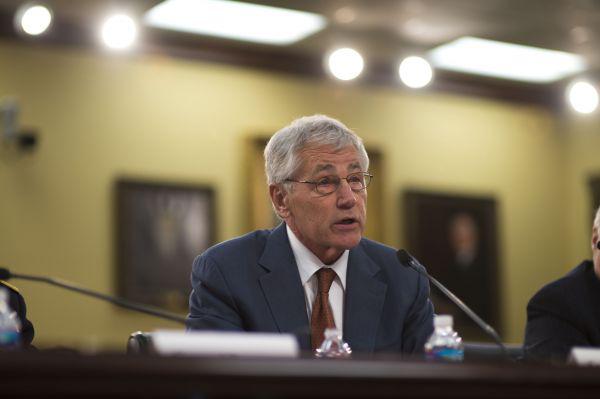House Committee Passes $600 Billion in 2015 DOD Spending
The House Armed Services Committee unanimously approved in the early morning hours Thursday its version of the fiscal 2015 defense spending bill, authorizing nearly $601 billion overall.
The powerful committee’s National Defense Authorization Act (NDAA) consists of $521.3 for spending on national defense, and an additional $79.4 billion placeholder for overseas contingency operations—a number that could fluctuate as war-funding requirements still have yet to be finalized.
Among many other programs and expenditures, of the total, the Defense Department sought $63.5 billion for overall research, development, test and evaluation costs, and $7.2 billion for space systems, including $1.4 billion for the Evolved Expendable Launch Vehicle, $1 billion for GPS satellites, $600 million for military communications satellites and $700 million for infrared detection satellites. Another $6.8 billion was sought for ballistic missile defense system. The committee approved in its legislation $52 billion for cybersecurity operations.
During deliberations, Congress asked the Defense Department to submit an unfunded priorities list, which outlines programs Pentagon officials would like to fund but which did not make the final budget cut. Those unfunded requests total $36 billion.
The United States spends roughly three times more on defense than its nearest competitor, and about as much as the next nine largest countries in the world combined, many of which are allies.
Not all is final yet, however. The bill now will be called up before the full House of Representatives for consideration and vote. And the Senate Armed Services Committee will go through the same process of drafting, marking up and voting on its own version of the NDAA before it heads for the full Senate for a vote. The measure is likely to spur a lot more political jockeying between the House and Senate as they debate each other’s bills. In order for a bill to be sent to President Obama, the exact same version must be passed in both chambers.





Comments